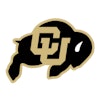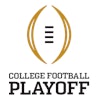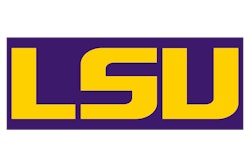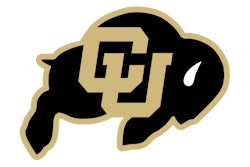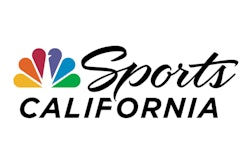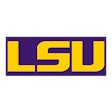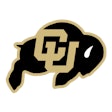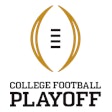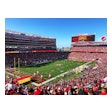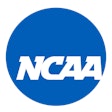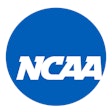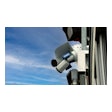Copyright 2017 Gannett Company, Inc.
All Rights Reserved
USA TODAY
Now more than ever before, the NFL's public position on gambling has become quite an artful dance.
On one side of the ballroom, the league opposes sports gambling and is against promoting casinos. The NFL even continues to fight a lawsuit that seeks payback from the league after it banned Tony Romo and other players from an event at a Las Vegas casino property in 2015.
On the other side of the room, the league increasingly has flirted with the gambling industry in recent years, including allowing advertising from casinos. In Arizona, casino company Gila River Gaming Enterprises confirmed to USA TODAY Sports this month that it has been having discussions with the Arizona Cardinals about buying naming rights to their stadium.
"This pertains to the stadium naming rights," the casino company said before reaching a non-disclosure agreement about it with the team. "This is a result of continued communications with the Arizona Cardinals through our strong existing relationship."
The league's gambling policy prohibits the sale of "primary stadium or field naming rights" to gambling-related establishments. So why is this a possibility in Arizona? The bigger question many have asked recently is why the league maintains this conflicted policy, especially after approving the relocation of the Oakland Raiders to the gambling capital of Las Vegas.
The simple answer is power and money -- to control players and personnel for the sake of appearances while making exceptions for the sake of revenue. The policy is even at issue in federal court, where the NFL is fighting a charity organization that said the league forced it to move a youth bowling event with NFL players in 2015. The charity said the NFL made it relocate to a much smaller bowling alley in Las Vegas because the bigger bowling alley was part of a casino resort.
"There is no reason for the NFL to alter its gambling policy if the only adverse ramifications are accusations of hypocrisy and negative media stories," said Daniel Wallach, a gaming and sports law attorney in Florida.
The only reason for the league to overhaul it, he said, would be for compelling legal or business reasons, which some predict could come within the next five years.
In the meantime, the Arizona discussions appear to be one of the most expensive examples yet of a rising NFL conflict — a league policy rooted in old, negative perceptions against gambling vs. the demand for more lucrative ties between NFL teams and gambling businesses.
Threading the needle
Stadium naming rights are lucrative sources of revenue for NFL teams. The Cardinals' last stadium naming rights deal, with the University of Phoenix, paid the team an average of $7.7 million a year.
But there are restrictions. No NFL stadium is named after a casino company, though Hard Rock Stadium in Miami Gardens is named after company that includes casinos in its portfolio.
Sale of naming rights for stadium lounges and other sections of the stadium is permitted by the NFL for certain casinos. For example, in 2015, the Detroit Lions unveiled the MGM Grand Detroit Tunnel Club lounge at Ford Field. But the policy specifically excludes gambling-related naming rights for the "field or primary building name," according to the league policy.
The NFL referred questions about the Cardinals' stadium naming rights to the club, which declined to comment.
It's possible the policy will change, like it did when the league allowed teams to accept limited casino advertising in 2012. It's also possible the team could try to thread the needle by selling naming rights to the casino company but not putting the casino company's brand in the stadium name.
Perhaps the stadium could be called "Gila River Stadium," just like the Gila River Arena next door, home of the Arizona Coyotes of the NHL, a league that has a more permissive stance about sponsorships with casino companies.
Gila River Gaming Enterprises is part of the Gila River Indian Community. The NFL's gambling policy says it's permissible to have "general advertising in the sovereign name of a Native American Nation, regardless of whether that Native American Nation operates or holds interests in a casino."
'Very negative terms'
The problem is perception. Such nuanced exceptions make the NFL's policy increasingly easy for critics to lampoon and raise questions about the point of such contortions as gambling becomes more publicly accepted.
In November 2012, NFL Commissioner Roger Goodell testified in a legal proceeding that gambling was No.1 on his list of threats to the integrity of pro football. In March, he also said the league doesn't envision changing its policies just because the Raiders are moving to Las Vegas.
"Even social gambling among co-workers can lead to discord, violence and a loss of team cohesion," the NFL policy states.
The league's steadfast resistance to sports gambling stems from its fear that bettors might scandalize the NFL by bribing players or coaches to fix game scores to their benefit. Critics of this stance long have pointed out that legalized, regulated sports betting will reduce this risk, not add to it.
Yet the league's opposition to sports gambling still doesn't seem to explain the league's position on being against certain types of casino associations but not others. Or why the NFL is against a team owner even partly owning a casino but not against two casino executives serving on the governing board of the landlord that will own the Las Vegas stadium where the Raiders are scheduled to play in 2020.
Its ban on certain types of gambling relationships stems from old public perceptions that associated gambling with organized crime and viewed gambling in "very negative terms," according to a 1999 memo to NFL teams from then-commissioner Paul Tagliabue.
'Piece of the pie'
But as legalized gambling became more publicly accepted, parts of the league's policy evolved, too, in ways that make it seem inconsistent and conflicted.
On the one hand, team owners have been allowed to hold stakes in daily fantasy sports companies, which are illegal in some states and can't operate in Nevada without gambling licenses. On the other, the NFL confirmed last week that it was still reviewing whether to discipline players for appearing at an arm wrestling event at a Las Vegas casino in April.
The NFL's "opposition to gambling has always sort of been 'until they can make money on it,'" said John Holden, an attorney and visiting scholar at Florida State University who has studied sports league gambling policies. "It's not totally clear where the line is or even if the line is very firm."
Wallach notes the league is enormously successful and therefore not inclined to fix anything until it thinks it must.
"It could be a court decision" that causes the NFL to change, Wallach said. "It could be a further decline in television ratings or a diminution of (media) rights deals."
The U.S. Supreme Court soon is expected to decide whether to hear the state of New Jersey's challenge to the federal ban on state-sponsored sports gambling, which is largely illegal outside of Nevada. The NFL is opposing New Jersey's challenge, but if the law changed and more states wanted to legalize sports gambling, the league could change its tune for acceptable regulations and financial considerations.
Meanwhile, a company affiliated with former NFL quarterback Romo is still fighting the NFL in court over its gambling policy. The company sued the league in 2015, saying the league used its "disingenuous" policy to effectively shut down the company's fantasy football event in Las Vegas. The league prohibited players from appearing at the event because its policy forbids promotional appearances associated with casinos.
After a judge sided with the NFL last year and threw out the case, the company appealed, and the case is pending in Texas court.
"The reality is that when the NFL gets a piece of the pie, the NFL flagrantly and systematically violates its own supposed policy against casinos and gambling," the lawsuit states. "Countless examples show the NFL's true attitude toward betting."
Read More of Today's AB Headlines
Subscribe to Our Daily E-Newsletter
Terms and Conditions Privacy Policy










